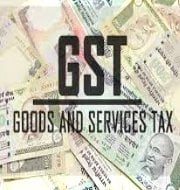Rajya Sabha passes The Constitution (122nd Amendment) (GST) Bill, 2014
The Rajya Sabha has unanimously passed The Constitution (122nd Amendment) (GST) Bill, 2014 to introduce the goods and services tax (GST).
With this passage of bill, India took giant step in structural indirect taxation reform and paved way for the concept of one nation, one tax.
Earlier the Bill was passed in Lok Sabha in May 2015. However, now the Bill will again go back to the Lok Sabha to incorporate the few amendments approved by the Rajya Sabha.
Note: The Constitution (122nd Amendment) (GST) Bill, 2014 will enter into the statute book as The Constitution (101st Amendment) Bill, 2016.
What is GST?
- GST is single indirect tax for the whole nation, which will make India one unified common market. It is a single tax on the supply of goods and services, right from the manufacturer to the consumer.
- GST is essentially a tax only on value addition at each stage i.e. credits of input taxes paid at each stage will be available in the subsequent stage of value addition.
- Thus, the final consumer will bear only the GST in the supply chain charged by the last dealer with set-off benefits at all the previous stages.
Purpose of GST
- GST aims to bring uniform indirect tax regime throughout the country by subsuming central and state indirect taxes into single indirect tax.
- It also seeks to enhance fiscal federalism by removing indirect tax barriers across states and integrate the country into a common market, boosting government revenue and reducing business costs.
Which indirect taxes will subsume into GST?
- At the Central level: (i) Central Excise Duty, (ii) Additional Excise Duty, (iii) Service Tax, (iv) Additional Customs Duty (also known as Countervailing Duty) (v) Special Additional Duty of Customs.
- At the State level: (i) State Value Added Tax (VAT) or Sales Tax, (ii) Octroi and Entry tax, (iii) Purchase Tax, (iii) Luxury tax, and (iv) Taxes on lottery, betting and gambling (v) Entertainment Tax (other than the tax levied by the local bodies) (vi) Central Sales Tax (levied by the Centre and collected by the States).
Key changes proposed to the Constitution (122nd Amendment) Bill, 2014
| Clause | 2014 Bill | Amendments in 2016 Bill |
| Additional 1% tax on inter-State trade |
| This provision has been deleted |
| Compensation to States |
|
|
| Dispute resolution |
|
|
| Replacement of the term IGST |
|
|
| Inclusion of CGST and IGST in tax devolution to states |
|
|
For more analysis: Goods and Services Tax (GST)
Month: Current Affairs - August, 2016








Atul singh
August 5, 2016 at 1:00 amThanks
Atul singh
August 5, 2016 at 1:00 amThanks
fathima jameel
August 5, 2016 at 5:13 pmcan i have some more information about this topic
fathima jameel
August 5, 2016 at 5:13 pmcan i have some more information about this topic
Vineet Chopra
August 5, 2016 at 5:51 pmGood write up
Vineet Chopra
August 5, 2016 at 5:51 pmGood write up
akshay taware
August 16, 2016 at 11:51 pmPerfect
akshay taware
August 16, 2016 at 11:51 pmPerfect
Shivashankar kongalla
January 26, 2017 at 10:30 amNice
Shivashankar kongalla
January 26, 2017 at 10:30 amNice